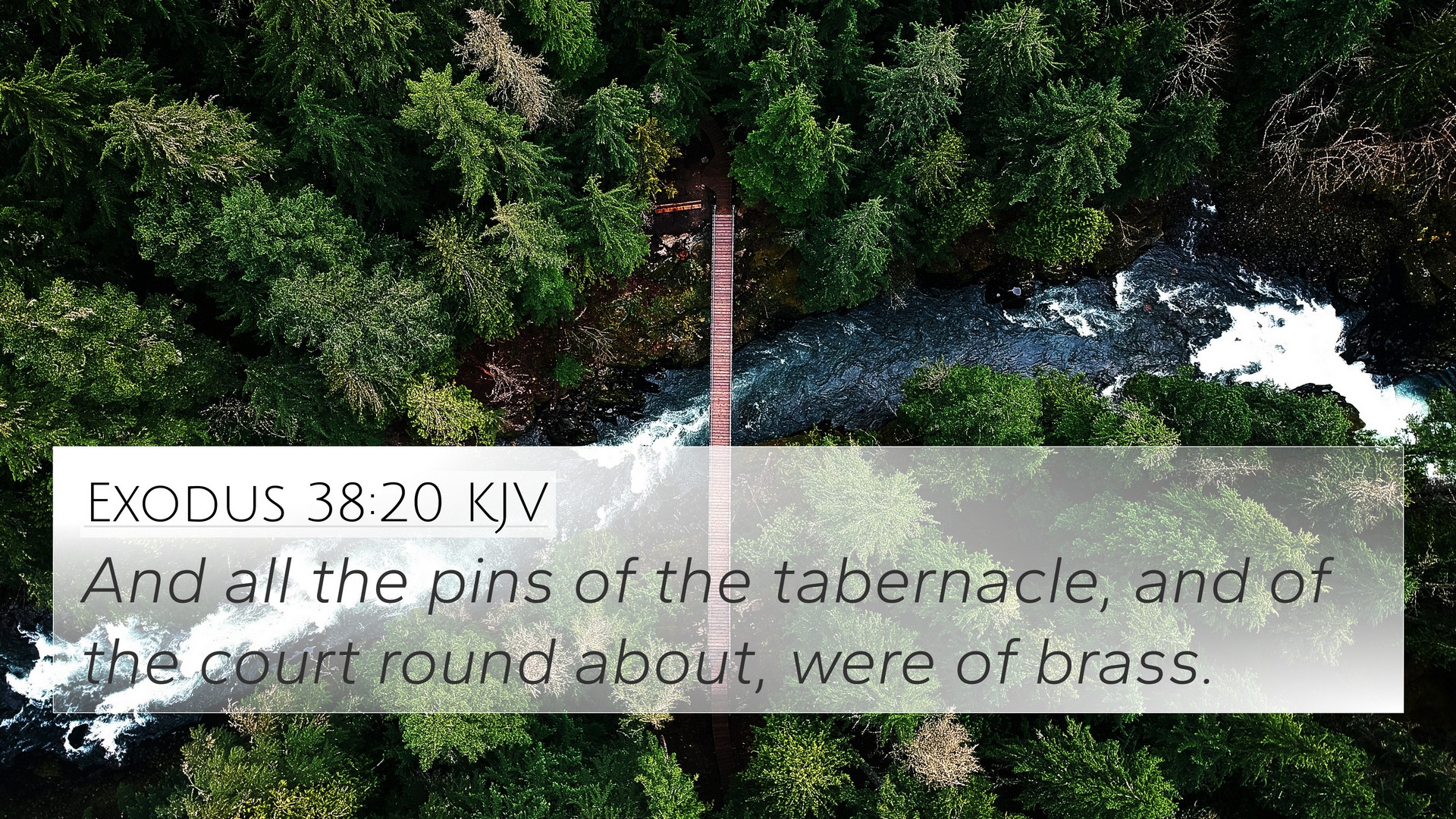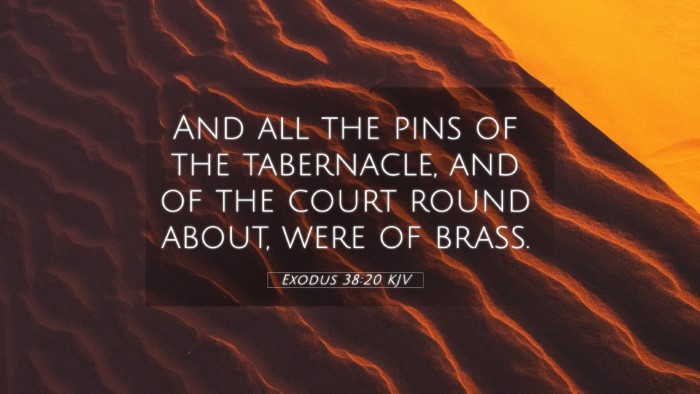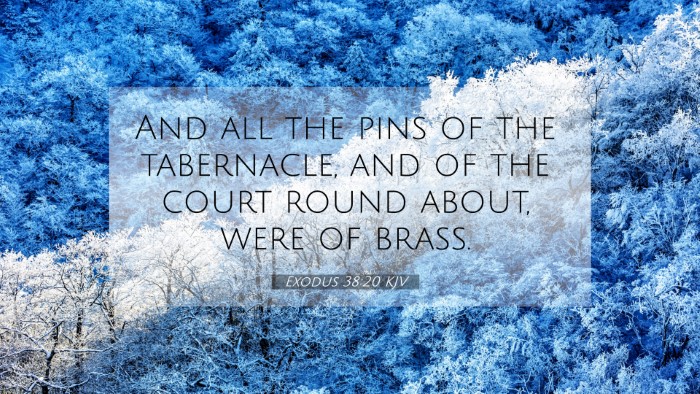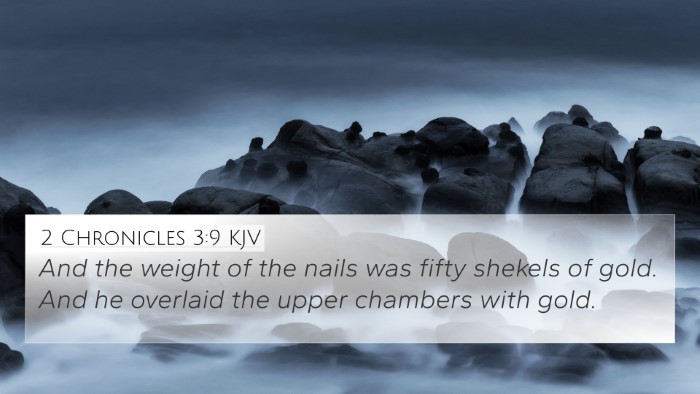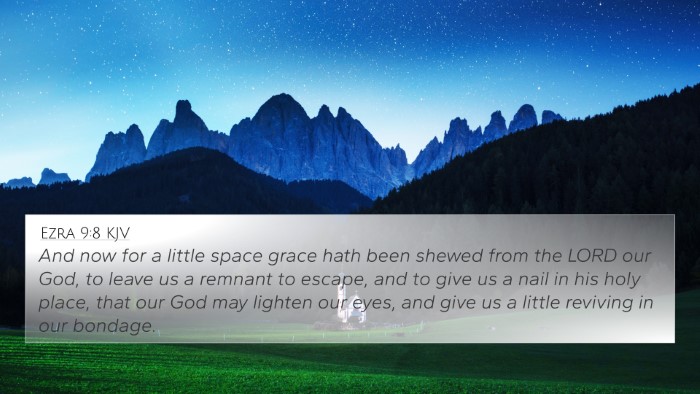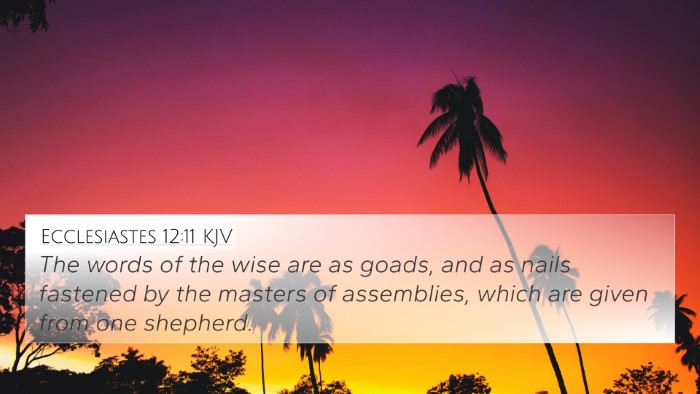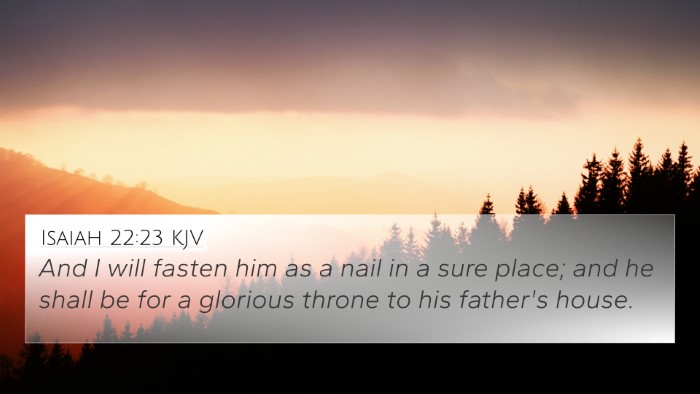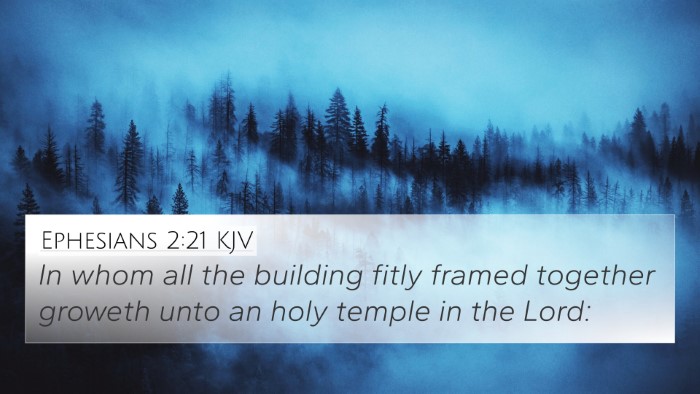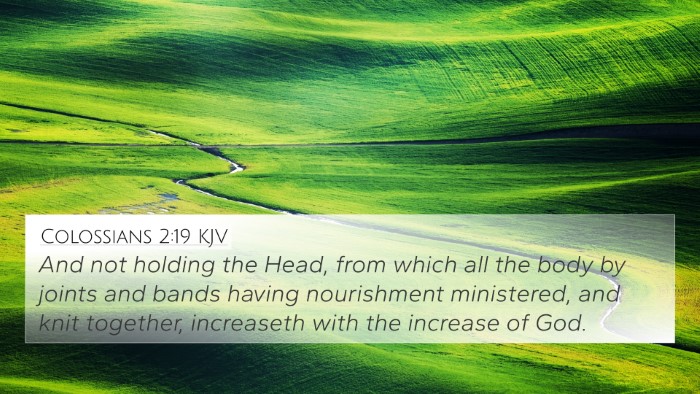Understanding Exodus 38:20
Exodus 38:20 states, "And all the nails of the tabernacle, and all the nails of the court, shall be of brass." This verse, while brief, holds significant implications regarding the construction and symbolism of the Tabernacle, as discussed by various public domain commentaries.
General Overview
In this verse, the emphasis is on the materials used in the Tabernacle's construction. The Tabernacle itself was central to Israel's worship and God's presence among His people. The choice of brass for the nails signifies durability and strength, underscoring the robustness of the spiritual and communal functions the Tabernacle served.
Commentary Insights
- Matthew Henry highlights the significance of the materials: brass represents judgment and the earthly nature of the Tabernacle. This speaks to the idea of God dwelling among His people in a temporary, yet profound way.
- Albert Barnes interprets the brass nails as a symbol of strength, illustrating how the assembly of the Tabernacle was solidified through these strong materials, much like the faith and unity of God's people.
- Adam Clarke notes that the nails were not only practical but spiritual, implying a connection to the fidelity of God’s covenant and the enduring nature of divine promises.
Symbolism of Brass
Brass is often associated with judgment in Scripture. The use of brass nails may symbolize God's judgment on sin and the purification process His people undergo. The Tabernacle was a meeting point for God and man, and the materials used reflect the weight of that interaction.
Biblical Cross References
This verse connects to several other scriptures that enhance our understanding of its meaning:
- Exodus 27:19: "All the vessels of the tabernacle in all the service thereof, and all the pins thereof, and all the pins of the court, shall be of brass." This verse reinforces the importance of brass in the structure of the Tabernacle.
- Exodus 38:10: "And the sockets were of brass." This highlights the consistency in using brass as a foundational material.
- 1 Kings 7:15-22: This description of the brazen pillars in Solomon's temple echoes the initial use of brass in the Tabernacle, establishing continuity in God's dwelling place.
- Hebrews 9:1-5: The reference to the Tabernacle in the New Testament shows how the earthly Tabernacle foreshadows the heavenly sanctuary.
- Numbers 16:38: This verse discusses the significance of instruments used in judgment, linking brass to divine judgment.
- 2 Corinthians 5:1: The 'earthly house' analogy parallels the temporary nature of the Tabernacle.
- Revelation 21:18: The New Jerusalem's use of various precious metals contrasts with the temporary brass used in the Tabernacle, hinting at eschatological fulfillment.
Thematic Connections
Examining the themes of strength and durability in Exodus 38:20 allows us to explore how God's covenant with His people affords them security and identity. The relevance of cross-referencing these biblical texts lies in illustrating the nature of God's covenant through the ages.
This verse also serves as a reminder of the continuous dialogue between the Old and New Testaments, linking themes of dwelling, worship, and divine presence.
Application in Study
For readers trying to explore connections between Bible verses, utilizing a Bible concordance or a Bible cross-reference guide enables deeper study. Tools for cross-referencing will help seekers identify thematic Bible verse connections and better understand the continuity of God’s plan from the Old Testament to the New Testament.
When preparing a sermon, it’s beneficial to utilize scripture that supports Exodus 38:20 and discuss how similar themes relate to modern faith experiences. For instance, drawing parallels with Philippians 1:6, which emphasizes the completion of God's work, helps highlight the enduring strength of God's promises.
Conclusion
Exodus 38:20 illustrates the union of practical craftsmanship and profound spiritual symbolism. The brass nails signify strength and judgment within the context of worship. By referencing related scriptures, we gain a richer understanding of the Tabernacle's purpose and the ongoing narrative of God’s presence with humanity.
